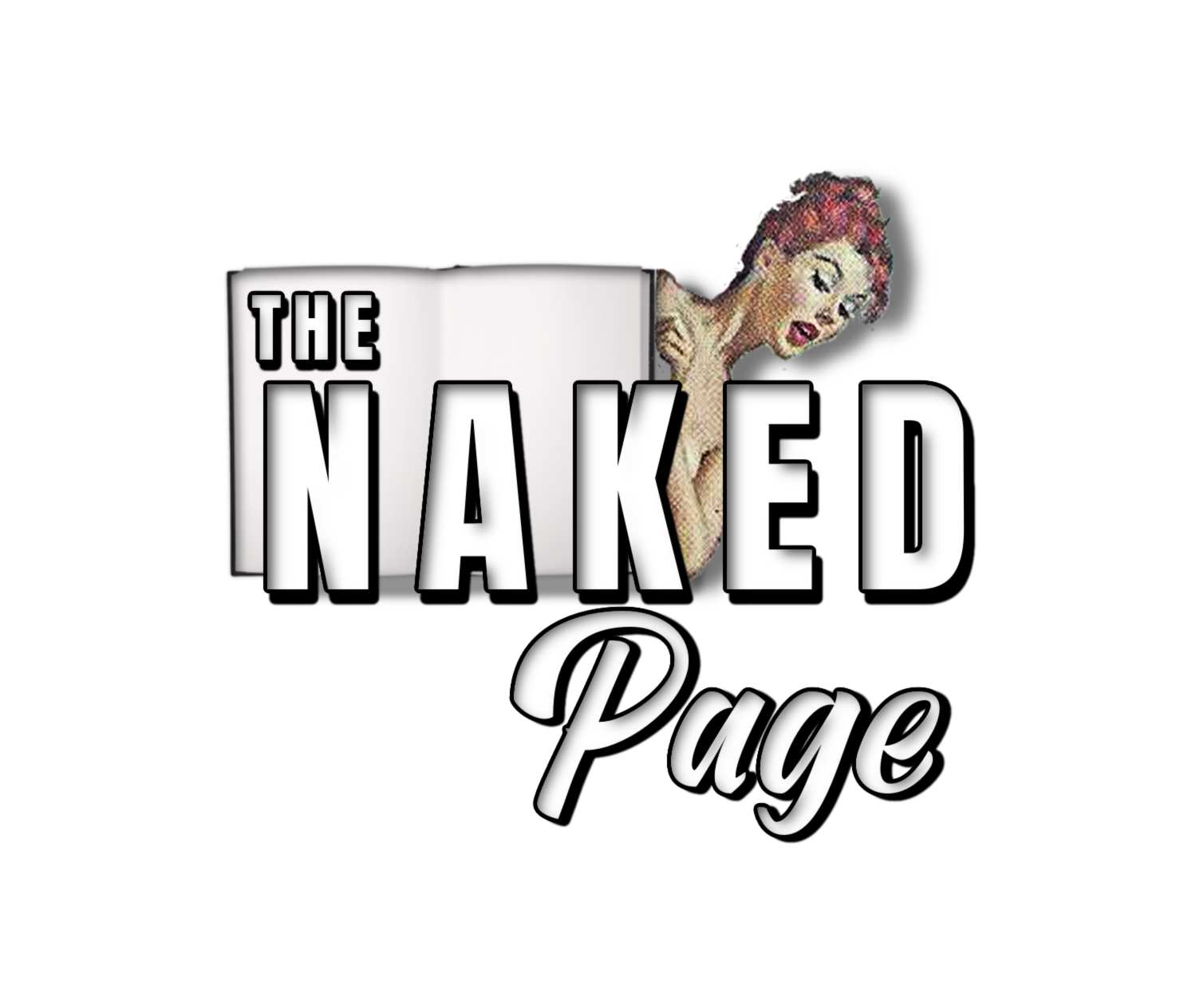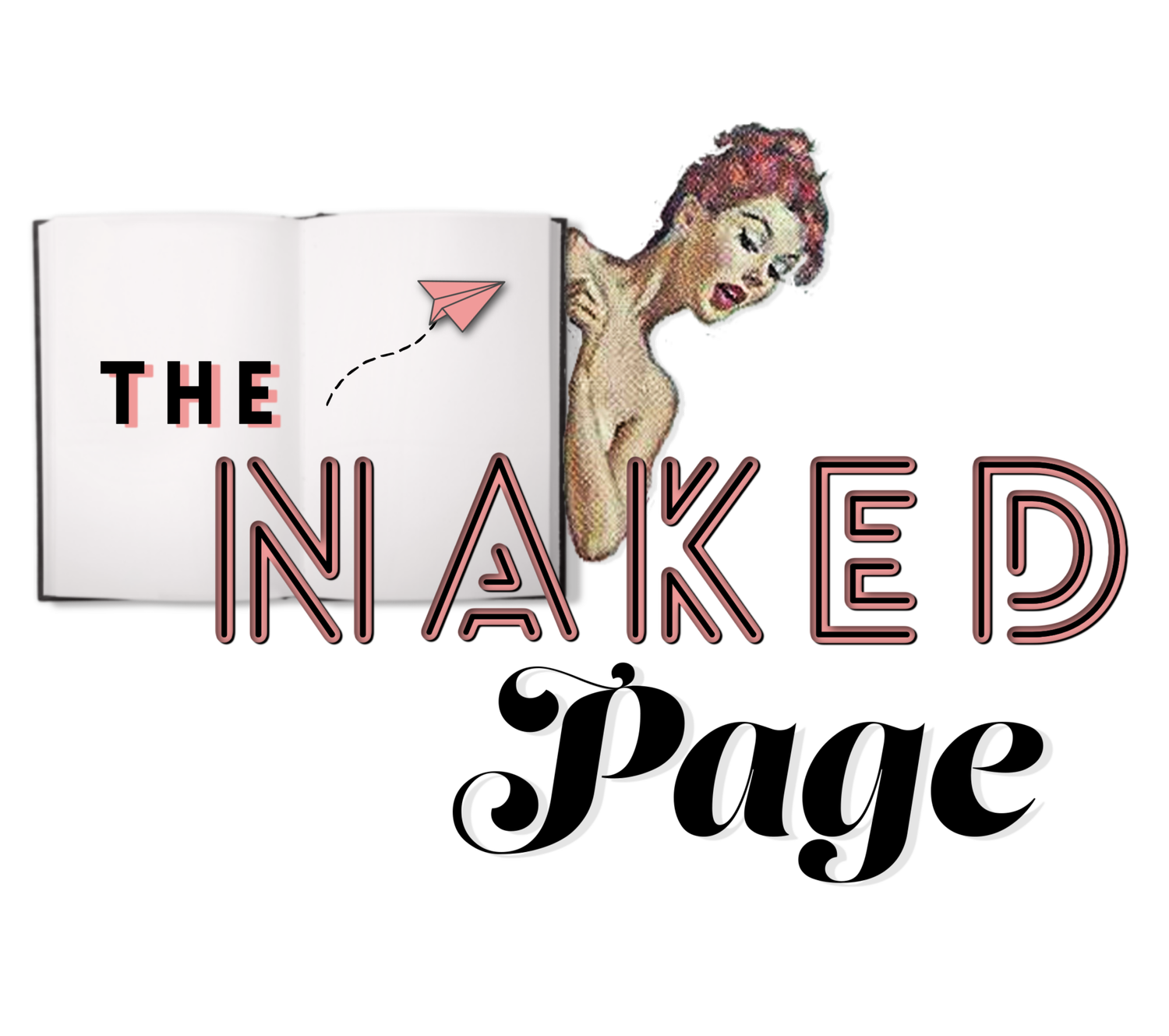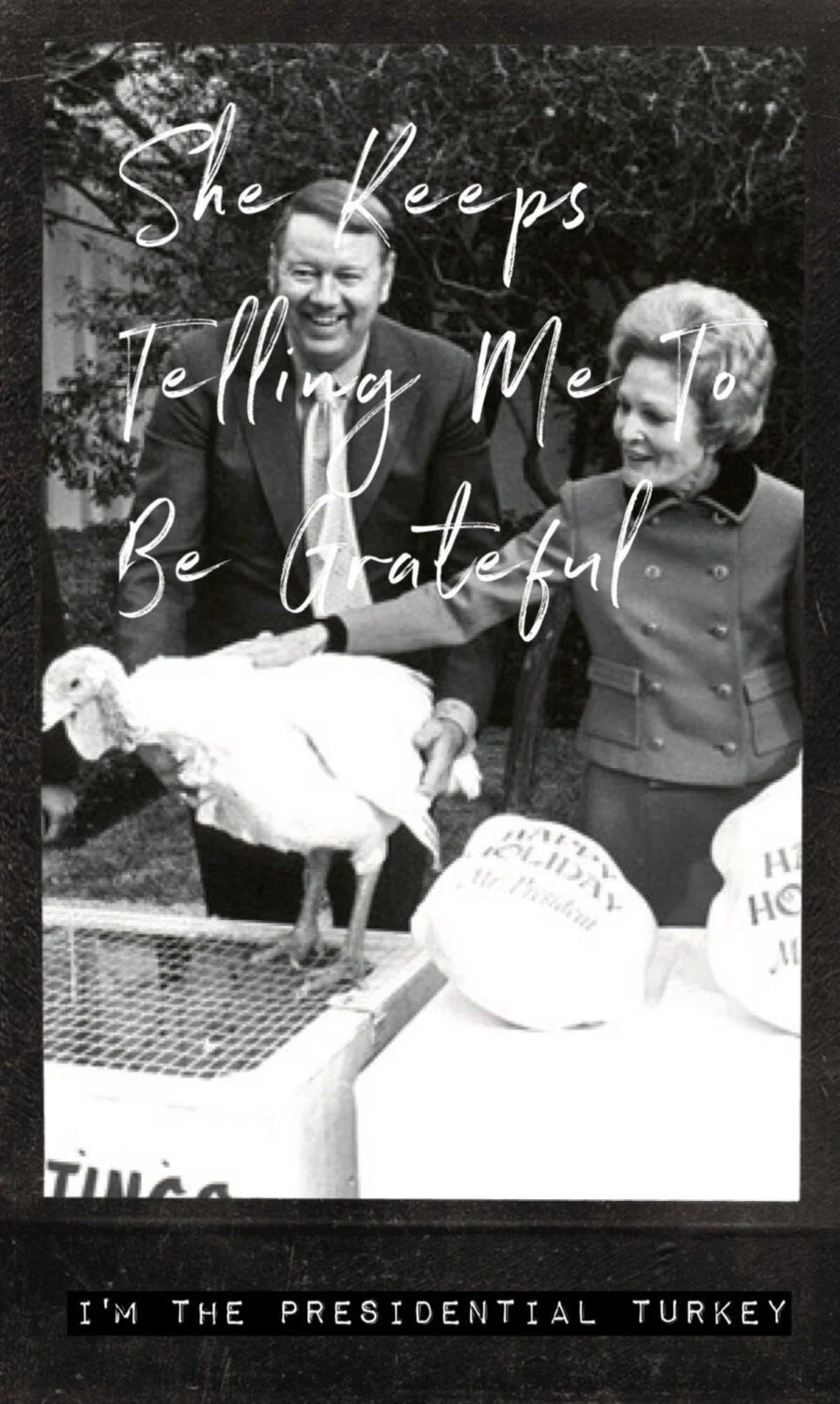Be Grateful, But Don't Turn Your Writing into a Gratitude Journal
It’s that time of year again. People start talking food and gratitude.
I think it’s important to embrace a sense of appreciation, too.
But is it ever possible to show too much appreciation?
That’s a great question for writers.
In life, gratitude means one thing.
My husband has nearly a decade in Alcoholics Anonymous. From him, I’ve learned the importance of cultivating thankfulness and giving back. His men’s group sponsors a family for Thanksgiving and Christmas every year. In AA, service work is seen as the key to staying sober.
For me, it’s the power of hand-written thank you cards. Not just as an opportunity to say thanks, but as a mechanism for writing practice and better communication.
Check out my post from last year on penning the perfect thank you note.
This year I’ve started a new gratitude ritual.
I try my best not to complain to customer service. But if I need to report a problem—say an order that didn’t show up or was broken—I now balance that with sending positive reviews to companies who’ve excelled in one area.
How often do we get good service and fail to tell anyone? But we’ll fly off the handle when a company screws up.
Hear me, oh universe, when I say this is my refusal to move into “get off my lawn” old lady territory just because stuff doesn’t work out in my favor. I’m trying to be more grateful and patient, especially in my business interactions.
Squarespace had an outage that lasted an hour and a half a few weeks ago. Yes, it was frustrating to be without service. But I couldn’t believe the number of temper tantrums and Twitter threats over this relatively short outage.
I’ve used Squarespace since 2012. This is the only time I’ve encountered a break in service. Up to this point, I’ve always received timely replies to my questions and I appreciate Squarespace’s innovative approach to business.
During the entire 1.5 hours of the outage, Squarespace provided regular updates.
Shit happens.
And there will always be circumstances beyond our control. But the company did everything in its ability to communicate with its customers. So why lash out at them?
I was impressed with what I saw them get right. And so I let them know.
Giving accolades is a way of telling people, I see you. You aren’t invisible. Thanks for giving me the tools I need to make my work and life happen.
In short, being grateful is a way to connect with people and more fully participate in the world.
And in the virtual world, we could use more positive connections.
I believe in showing this kind of gratitude regularly. I also use gratitude as a way to keep my writing connected by envisioning an ideal reader who I must entrust with my work.
But is it ever possible to show too much appreciation?
Unfortunately, yes, it is—when you’re writing your memoir.
Gratitude is a powerful expression for most areas of life. But giving thanks in your writing can backfire.
To understand how appreciation can halt your capacity to create an accurate and compelling story, we must first look at what happens when you’re overly grateful.
For starters, how many women do you know who are walking around lacking a sense of gratitude?
Think hard now….are they really ungrateful?
Nope. I didn’t think so.
Most women I know and grew up knowing were so thankful for their families that they often failed to identify their own needs. And today this kind of appreciation also extends to women’s work families.
I know a number of women who spend so much time being thankful for having a job they allow themselves to be taken advantage of. Women who become the office mama. They not only do their jobs but get unofficially elected to be everybody else’s counselor, cleaning lady, and coffee server.
Or teachers and flight attendants who run on little sleep, don’t eat, and give up their vacations and holidays to be available to students and passengers. They’re the ones deserving of more gratitude—and a bigger paycheck.
But I’m not judging anyone’s job here. Except in one place.
Writing.
Sorry, ladies. There is absolutely no room for your excessive gratitude in a memoir. It can compromise the story you must tell. Your appreciation can kill a work of creative nonfiction faster than rat poison will drop a mouse or the victim of a murder mystery!
I understand this rule about thankfulness because I had so much damn gratitude for everybody that it nearly ruined my first memoir.
Ever wonder about this elusive memoir I keep talking about?
It was a great starting point.
That memoir taught me a tremendous amount about the writing process. It also made me rethink what material I wanted to release into the world. When I realized there were areas of my memoir I wasn’t ready to put out publicly, I scrapped the idea of publishing… for now.
But I didn’t just drop my memoir cold. I cut it up and used it for kindling. I’d slice off a piece here and use it in a blog. I’d cut off a slab there and rework it into a short essay for a travel magazine.
None of it got wasted.
More than anything, that memoir was instrumental in helping me become a better editor. To home in on what works and doesn’t work for other people’s writing. I fell in love with the editing process. So, I shelved my story and began editing everyone else’s memoirs.
And I’ve got three more memoirs in various points of progression.
One day, I’ll go back and rework my first memoir. But that will require me to put the brakes on helping others with their stories. For now, I’m thankful for what I learned while writing it.
One of my greatest lessons: Nothing stops a memoir in its tracks like having too much gratitude.
Why?
Because being overly appreciative can quickly slide into asking for permission. And nothing reeks of bad writing like asking, “is it okay that I’m saying this about you?”
I get it.
It’s scary to write about other people.
On the one hand, you wonder if you’ll offend anybody. And on the other, you worry you might get sued.
If you’re in the US, most legalities are stacked in your favor. Unlike our UK cousins, where the laws are much more stringent, the US has a more liberal policy on intellectual property. Remember suing for defamation due to libel requires the person filing suit to prove what was written was false and that it caused damages.
But if you’re just getting started writing, you shouldn’t even be thinking about legalities. That is way, way, way too far in the future to even ponder right now.
Do not use your fear of future legalities as a reason to not write one word.
Memoirists writing about others will often stop themselves from writing because they fret about what people will think of them.
Most people—ahem—WOMEN have an overdeveloped sense of responsibility and fear about what we should and shouldn’t say. Or we worry we’ll unintentionally hurt someone’s feelings.
This may make you a great friend. But it’ll also make you a bad memoirist.
Remember Cheryl Strayed?
She wrote about cheating on her husband while doing heroin. Her memoir was exceptional. But imagine how it would have read if she kept questioning whether or not she had the right to detail her experiences because she didn’t want to hurt her ex-husband’s feelings.
Let’s be honest here. When am I not?
Memoir writing will challenge most of what you’ve been taught as a woman.
It may ruffle feathers. It could distance you from relatives.
But did you even like those people to begin with? I didn’t think so.
Rosemary Daniell once told me that her memoirs only caused controversy with the relatives with whom there was already a strained relationship.
The reality is the people that don't embrace the way you write probably don't know you as well as they'd like to think they do. They may have turned you into a stereotype or a caricature. I bet they think life would be just swell if you’d take up residence as their version of you. The one where you never speak your mind or stand up for yourself.
The writing process will definitely force you to redefine some of your relationships. But that’s what it’s designed to do. When you write, you must reexamine your world—all of it. Not just the fun parts.
Also don't expect to be the same person after you've written your memoir as you are today. If you don’t like the idea of how writing will change you, it’s best not to type one single word.
But I know that’s not you. You’re here because you’re drawn to writing. That means you’re drawn to using this craft to better understand yourself.
So you must do whatever you need to do to keep your family from reading your first draft. To fully immerse yourself in the healing waters of the writing process. Maybe I sound dramatic, but I really mean this!
Don't let anyone hinder your writing in any way.
Write in private.
Don’t share your work.
Use a pseudonym.
Keep a padlock on your computer.
Publishing is an entirely different animal and you can approach legalities at a later date.
The writing process is strictly for you right now.
Some of us absolutely need to write a memoir to exorcise our demons.
Have you seen Linda Blair in the Exorcist? She didn’t look so good during the process.
The initial stage of writing your truth is not the place to have family members nosing around in your work. Give yourself time to get the ugly out.
If you start by being concerned with how people see themselves in print, you’ll never produce any content.
Plus, the people stuck inside your memoir aren’t exactly living, breathing humans, anyway.
The rules for writing characters in a memoir restrict their free will:
A memoir is a slice of life, not an autobiography.
Each character is only described during your memoir’s limited period of time.
Your description of each character is seen solely through your eyes.
Every character must fit into a specific theme.
Sure, you must be truthful and accurate. But characters are placed in a memoir to serve a purpose. They aren’t indicative of the totality of any one person. If they were showcased to that extent, each character would need their own memoir.
Remember this memoir is about your experiences as seen through your eyes.
Still, new writers fret over writing about others.
Women writing their birth stories encounter such an overabundance of gratitude for having a healthy child they often refrain from fully and accurately describing hospital staff or family members’ bad behavior.
When I first wrote my birth story, I was afraid to say anything negative about the experience out of fear I’d embarrass or challenge the doctor (who would most likely never lay eyes on my story).
Labor and delivery are such intimate experiences, and you rely so much on other people, it’s hard to be critical.
Guess what—I had a fantastic OB, but my labor didn’t go as planned.
None of it.
And that made it trauma-inducing.
No one is perfect.
But I still needed to tell my birth story.
I own the rights to it.
It doesn’t mean I’m not incredibly appreciative that I live in a modern age with innovative technology. Or that I didn’t respect having great nurses or an intuitive doctor.
But do you see how a birth story can quickly become an overextended thank you note for being alive in the 21st century?
Yeah, that’s not a memoir.
We women often shame each other into staying in line by being overly grateful.
And that means shaming ourselves out of writing a compelling memoir.
Truth is you need to reclaim the parts of your story that didn’t turn out the way you expected.
Go ahead and examine what didn’t work.
Speak candidly about those areas.
Not because you have no appreciation for your life.
But because the difficult stuff—that stuff that didn’t go as planned—might still be scary.
You may still be reliving it.
And because it’s most likely the place where you’ll connect with your readers. And yourself.
If you can’t get past the gratitude to write an honest account of your birth story or memoir, then sit down and write some thank you letters first.
Spell out all your appreciation before you begin your real writing.
Once you start your memoir, commit to telling the truth. Your truth.
Not the truth as your doctor saw it. Or the one your husband remembers. But your story from your perspective.
Even if your mother-in-law keeps trying to convince you you were too upset to remember events correctly. Don’t listen to her. In fact, go ahead and write out a nasty letter you never intend to send to her. I don’t know why I’m picking on MILs. I had a great one during my pregnancy.
Yes, you can be thankful for your doctors. For living in this period of time. And for current technology, too.
But remember when you write your birth story—or any other narrative—you aren’t writing a positive review. You’re conveying an accurate representation of what you lived through. And you need conflict to set the action into motion.
Your readers may even think, “I should stand up for myself and get my needs met.”
When we consider the abysmal maternal care in this country, especially the decline of support for postpartum mamas in the US and women of color, it becomes even more important for pregnant women and new moms to hear real stories. Stories that may help them feel less alone or will encourage them to advocate for themselves or find advocates to work for them while in the hospital.
You aren’t under some gag order to be grateful or else.
We need women committed to writing with candor.
And mothers describing their undigested feelings.
When you find the words you are meant to write, you'll write them regardless of the consequences. The words will be you and you will be the words.
And for that kind of truth, you can be grateful.


